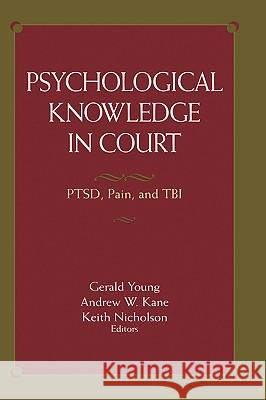Psychological Knowledge in Court: Ptsd, Pain, and Tbi » książka
Psychological Knowledge in Court: Ptsd, Pain, and Tbi
ISBN-13: 9780387256092 / Angielski / Twarda / 2006 / 412 str.
PTSD, pain syndromes, traumatic brain injury: these three areas are common features of personal injury cases, often forming the cornerstone of expert testimony. Yet their complex interplay in an individual can make evaluation--and explaining the results in court--extremely difficult. Psychological Knowledge in Court focuses on this triad separately and in combination, creating a unique guide to forensic evaluations that fulfills both legal and clinical standards. Its meticulous review of the literature identifies and provides clear guidelines for addressing core issues in causality, chronicity, and assessment, such as: - Are there any definable risk factors for PTSD?
- How prevalent is PTSD after trauma?
- How do patients' emotions relate to their pain experience?
- Are current pain assessment methods accurate enough?
- What is the role of pre-existing vulnerabilities in traumatic brain injury?
- What exactly is "mild" TBI? The editors and their 38 contributors explore psychological sequelae across traumatic events as diverse as auto accidents and sexual assault, cogently discuss confounding factors, and pinpoint diagnostic and methodological controversies. In addition, the book reviews key concepts in evidence law that every practitioner should know to be effective on the stand. Both mental health and legal professionals will benefit from this forward-looking resource. Its integrative, nuanced coverage makes it vital reading not only for psychologists, psychiatrists, and rehabilitation specialists, but for tort lawyers and judges as well.











